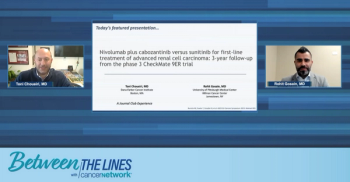
Panelists continue to discuss long-term follow-up data from the CheckMate 9ER trial, focusing on treatment-related adverse events seen in patients with ccRCC treated with nivolumab plus cabozantinib.

Your AI-Trained Oncology Knowledge Connection!


Panelists continue to discuss long-term follow-up data from the CheckMate 9ER trial, focusing on treatment-related adverse events seen in patients with ccRCC treated with nivolumab plus cabozantinib.

Two subject matter experts discuss survival and response data from the CheckMate 9ER trial comparing combination nivolumab/cabozantinib to sunitinib in patients with advanced ccRCC.

Arvind Dasari, MD, MS, reviews the PARADIGM study on EGFR-targeting therapy in metastatic colorectal cancer.
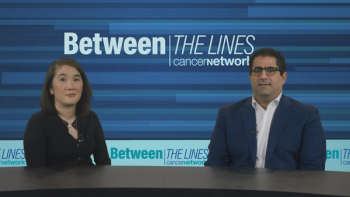
Helena A. Yu, MD, and Joshua K. Sabari, MD, look to the future of frontline treatment in EGFR exon 20–mutated non–small cell lung cancer.
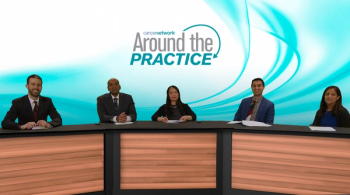
Expert oncologists present the case of a 47-year-old woman with colorectal cancer and early disease progression, and discuss treatment options with the ongoing MOUNTAINEER-03 study.
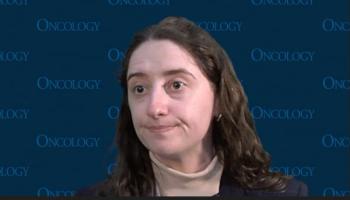
A recovery tracker and other digital tools may be useful in helping to manage patient symptoms following debulking surgery for gynecologic cancer, according to an expert from Memorial Sloan Kettering Cancer Center.
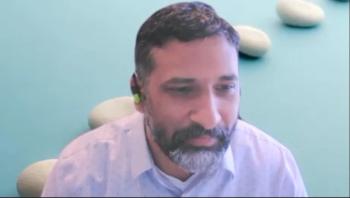
According to an expert from University Hospitals, integrative oncology has a place in the treatment of patients with kidney cancer alongside palliative care, psycho-oncology, and physical therapy.
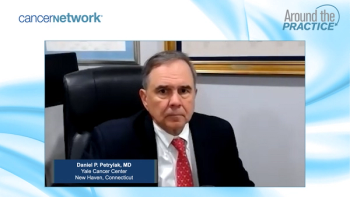
After nuancing quality of life data with chemotherapy in metastatic hormone-sensitive prostate cancer, panelists consider the value of multidisciplinary care.
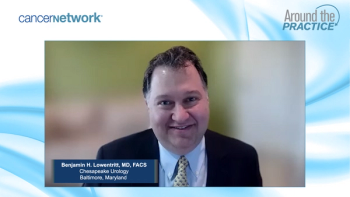
Focused discussion on the respective roles of doublet and triplet regimens in patients newly diagnosed with metastatic hormone-sensitive prostate cancer.

Common symptoms following debulking surgery for gynecologic cancer appear to include pain, diarrhea, and nausea, according to an expert from Memorial Sloan Kettering Cancer Center.
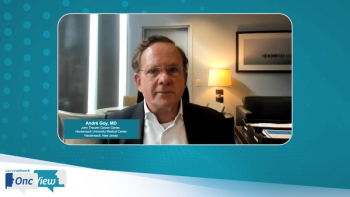
Experts on B-cell malignancies discuss second-line therapy options for patients with relapsed/refractory mantle cell lymphoma.

A comprehensive overview of CAR T-cell therapy as a treatment modality for mantle cell lymphoma, including insights on the ZUMA-2 clinical trial.

According to an expert from University Hospitals, oncologists should work together and look for opportunities to improve patients’ diets and exercise routines to mitigate symptoms of kidney cancer and associated treatment.
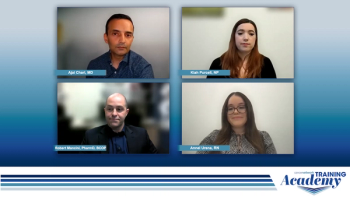
Shared insight on the respective roles of a multidisciplinary care team involved in the management of multiple myeloma and associated adverse events.


Shared insight on how experts select among the available BCMA-targeting bispecific antibodies and CAR T-cell therapies in patients with multiple myeloma.

Expert panelists reflect on other clinical trials aimed at defining the role for BCMA-targeting bispecifics in multiple myeloma and consider how they would utilize this class of agents in real-world practice.
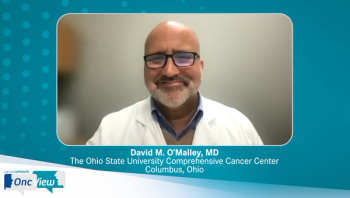
Closing the discussion on advanced endometrial carcinoma, Dr David O’Malley shares his perspective on the future treatment landscape.

Drs Choueiri and Gosain review study design, patient demographics, and clinical characteristics from the CheckMate 9ER trial, including prior nephrectomy and PD-L1 status.

Toni Choueiri, MD, and Rohit Gosain, MD share their clinical experience treating patients with clear cell renal cell carcinoma (ccRCC) and provide a short summary of previously reported data from the CheckMate 9ER trial.

Lung cancer experts discuss how these real-world data comparing amivantamab with alternative therapies may impact their clinical practice.

Experts on HER2+ metastatic colorectal cancer review the MOUNTAINEER study on tucatinib plus trastuzumab.

An overview of the treatment landscape for HER2+ metastatic colorectal cancer and recent updates to the NCCN Guidelines.

Joshua K. Sabari, MD, and Helena A. Yu, MD, discuss real-world data comparing amivantamab with other therapies in EGFR exon 20–mutated non–small cell lung cancer.

According to an expert from University Hospitals, studying pathways related to inflammation, epigenetics, and the microbiome may elucidate how patients with kidney cancer respond to anti-cancer therapy.

The impact of the gut microbiome, and antibiotics and probiotics on immunotherapy outcomes are areas of research currently under investigation for patients with kidney cancer and other cancers, according to an expert from University Hospitals.
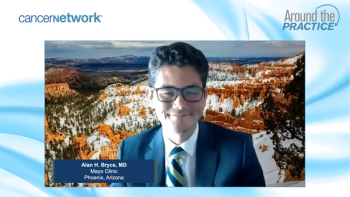
Panelists reflect on molecular markers and other clinical factors that aid in the selection of best therapy for a patient with metastatic hormone-sensitive prostate cancer.
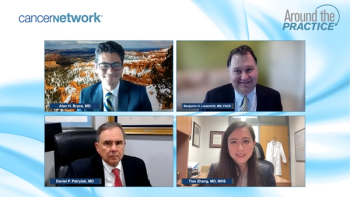
Key opinion leaders in the field of prostate cancer management consider optimal molecular testing practices in a patient with metastatic hormone-sensitive disease.

Patients who use a recovery tracker tool appear to experience lower hospital readmission rates following gynecologic cancer debulking surgery compared with those who did not.

Expert oncologists give an overview of the BRUIN trial and discuss pirtobrutinib as a treatment for patients with mantle cell lymphoma.